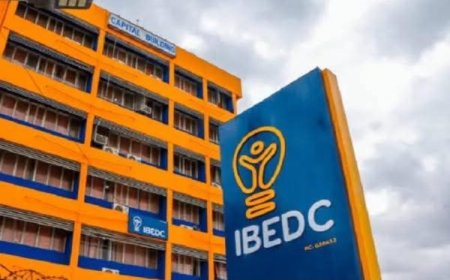FIRS Clarifies Nigerians Do Not Need Separate TIN to Operate Bank Accounts

By: Israel Adeleke
OPEN TELEVISION NAIJA (OTN) News reports that the Federal Inland Revenue Service (FIRS) has clarified that Nigerians do not need to obtain a separate Tax Identification Number (TIN) to open or operate bank accounts, countering reports that suggested a new requirement would take effect from January 2026.
OTN News further reports that in a statement posted on Saturday via her official X account, Arabinrin Aderonke Atoyebi, Technical Assistant on Broadcast Media to the FIRS Executive Chairman, Zacch Adedeji, explained that Nigeria’s new tax framework is fully integrated with existing national registries such as the National Identification Number (NIN) for individuals and the Corporate Affairs Commission (CAC) for businesses.
“In recent debates about Nigeria’s tax reforms, a widespread misconception has taken root: that citizens without a Tax Identification Number (TIN) cannot own or operate a bank account,” Atoyebi said.
“The reality is that Nigeria’s tax system has evolved to integrate seamlessly with existing national registries, ensuring that every eligible individual or entity is automatically identifiable for tax purposes.”
She noted that the TIN, a 13-digit identifier, is not a separate requirement for citizens but a statutory tool that ensures unique verification of every taxpayer.
For individuals, it is automatically linked to their NIN, while businesses and corporate entities are connected through their CAC registration numbers.
“When an individual provides their NIN during bank account opening or Know Your Customer (KYC) processes, the system cross-checks the NIN in the national database. As part of this verification, the TIN is automatically retrieved and attached to the person’s records,” Atoyebi explained.
According to her, the integrated framework promotes financial access, reduces fraud, and ensures regulatory compliance. It also eliminates duplicate or false identities by allowing banks and financial institutions to rely on a single, consent-driven source for onboarding, reporting, and compliance checks.
Atoyebi emphasized that the misconception about being barred from banking services without a separate TIN was misplaced.
“By linking TINs to existing foundational identifiers such as the NIN and RC Number, the system ensures automatic compliance without creating unnecessary barriers for citizens. In practice, this means a Nigerian walking into a bank with their NIN is already tax-compliant. The bank simply retrieves their TIN as part of its onboarding process,” she said.
OTN News, however, observes that the FIRS clarification is aimed at reassuring Nigerians and businesses that the TIN framework is designed to enhance financial inclusion, transparency, and alignment with global financial standards without introducing new bureaucratic hurdles.
What's Your Reaction?
























































